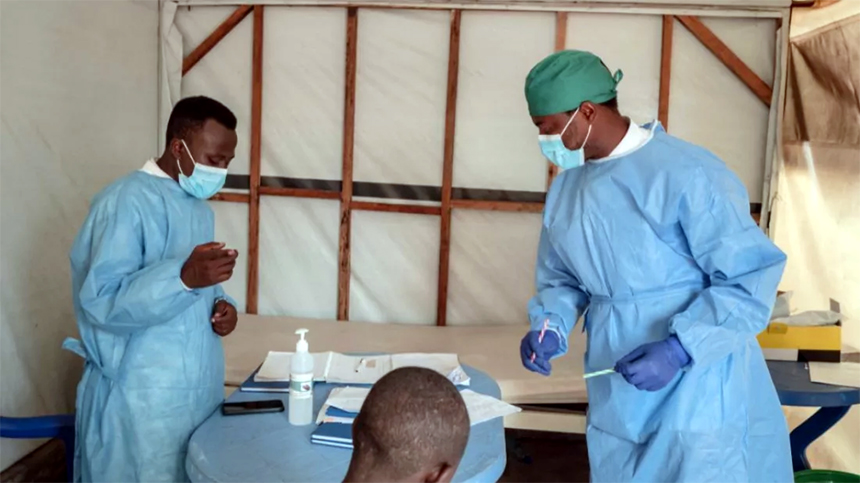AFP :
With a rise in monkeypox cases across Africa, the Democratic Republic of Congo (DRC), the hardest-hit country, is seeing a death toll approaching nearly 600, according to the latest reports from health officials.
The number of cases increased from 16,000 to 16,700 in just a few days, according to Health Minister Samuel-Roger Kamba. The central African country is currently awaiting vaccines from the United States and Japan.
“We are talking about a continental emergency,” Kamba told a press briefing as the World Health Organization (WHO) called on affected countries to step up vaccination programmes to counter a more deadly strain of mpox.
The WHO on Wednesday declared the mpox surge in Africa a global public health emergency. Outbreaks have been reported in Burundi, Kenya, Rwanda and Uganda since July. A case of the new strain has also been detected in Sweden.
The United States has promised 50,000 vaccine doses for DRC, while Japan on Monday agreed Monday to send 3.5 million doses, “only for children,” a medical source, who spoke on condition of anonymity, told AFP.
The source said that DRC “plans to vaccinate four million people including 3.5 million children.”
“I hope by the next week we will already be able to see the vaccines arriving,” Kamba said.
“The vaccine is a solution to our problems,” he added, urging people to get jabbed.
“Our strategic vaccination plan is ready. We are just waiting for the vaccines to arrive.”
Cases have now surfaced in all 26 provinces in the country of around 100 million people.
The WHO has declared the outbreak “a public health emergency of international concern” — its highest alert category.
On Monday it released updated guidelines on countering the surge, including by “the agile adaptation of immunization strategies and plans to concerned areas.”
It called on countries to “scale up efforts to thoroughly investigate cases and outbreaks of mpox disease” to understand its transmission and prevent the spread “to household members and communities.”
Health authorities must report new cases on a weekly basis and “identify, monitor and support the contacts of people with mpox to prevent onward transmission,” it said.
It added that countries had to be ready to provide food and other support for mpox patients “including, as warranted and possible, isolation in care centres and guidance for home-based care.”
The WHO said there has to be greater “cross-border collaboration” to monitor and handle suspected mpox cases “without resorting to general travel and trade restrictions unnecessarily impacting local, regional or national economies.”
Mpox kills 570 in DR Congo




